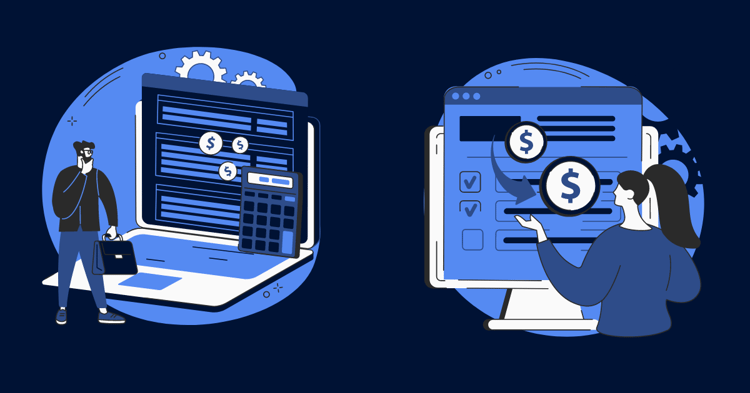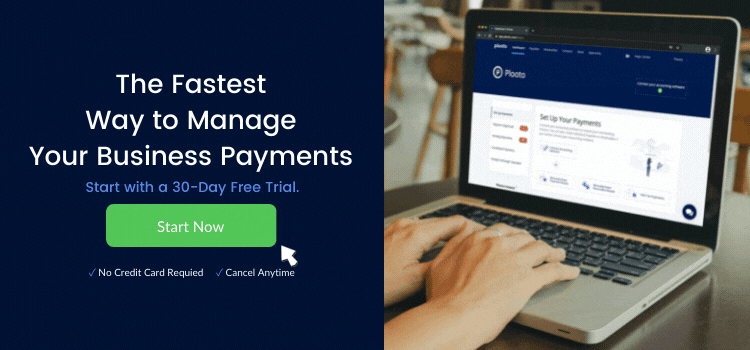
Being a Chief Financial Officer (CFO) in today's world is quite different from what it was, even 10 years back. The demands of a fast-paced, inter-connected world have catapulted the CFO's role into a whole new direction and dimension. There is more data to be captured, and there are more tools to make life easier. But technology can also be overwhelming.
With such a wide array of options, CFOs need to educate themselves on the latest accounting innovations to help their companies become smarter and save time and resources.
Adapting the right technologies will play a key role in the digital transformation process. It will help scale a sustainable business and stay competitive in the long run.
Best Accounting Innovations
Emerging accounting technologies are custom-designed to bring efficiency, transparency, and scalability to the accounting function, and in turn, the businesses they serve. Innovations in accounting are a great investment towards building more sustainable businesses for the future. It brings a competitive edge and creates a more informed, savvy workforce.
Hence, it is advisable for every modern CFO to become savvy with 12 innovations in accounting that can truly help them transform their businesses.
1. Cloud-Based Accounting Systems
Making the shift to cloud-based accounting systems is one of the first and most important steps towards building access and transparency into data systems. By leveraging cloud computing, accountants and other stakeholders can access financial data. It paves the way for superior collaboration between accountants and their team members or clients who may request to view financial reports or raw data.
The second benefit is that the cloud can be accessed from multiple devices at any given time, and on the go, via smartphones. Plus, when old stakeholders leave or new ones enter the ecosystem, they can quickly access the data without extensive training or handovers.
2. Complete Accounting Software Integration
Accounting comprises many tasks, from managing financial reports and invoices to processing payment, handling payroll, tax management, and tracking inventory.
Traditionally, manual entry was used. However, all the software solutions need to be able to communicate with each other. This also avoids data duplication and leakage. When preparing your tech stack, ensure that the software applications are compatible and can be integrated seamlessly. This will streamline all activities and minimize errors.
3. Artificial Intelligence (AI)
AI is transforming the texture of all fields, and innovations in field accounting are no different. AI in accounting can automate a range of repetitive tasks such as bookkeeping and transaction coding. It helps generate elaborate and specific financial reports.
These shifts help to accelerate the pace of outcomes, and accounting professionals can then focus on offering more strategic inputs and be part of larger problem-solving. It is perhaps the most transformative of all technologies to bring a competitive edge to businesses.
4. Machine Learning (ML)
This is a type of AI that helps detect patterns. This is achieved by analyzing large amounts of data based on pre-programmed algorithms and statistics. In the context of accounting, ML can help detect irregular patterns, which is a great way to anticipate potential fraud.
Additionally, it can help towards automating categorization. For example, in a few seconds, an accounting professional can evaluate if a specific expense is relevant to a business by comparing it to a larger data set. ML can be a great friend to any accounting professional and help them play a more lucrative role in adding value to their employer or client's business.
5. Digital Payments
An exponential number of consumers and businesses have already made the shift to digital payments, especially during the pandemic. This number is only expected to grow, and the total worldwide transactional value via digital payments is expected to reach USD 6.6 trillion in 2021. This shift is helping companies expand their consumer and client markets to include overseas customers and those in newer geographies.
Next-generation accounting software programs come with several innovations. They enable you to focus more on growing the business, as the software does the real work. For example, some software can record digital currency transactions at the real-time exchange rate.
They can also report the right capital gain tax without any manual intervention, bringing speed and accuracy into the system.
6. Blockchain
Financial data is sensitive and companies, today, are investing in blockchain tech that helps them record their financial transactions in the digital and highly secure ledgers. Blockchain helps companies make financial transactions transparent. It is easy to audit and access by authorized stakeholders in real-time from any location.
Organizations can also invest in highly customized software applications that use blockchain for several processes. These processes can range from expediting the transfer of funds to reducing accounts receivable and payables and facilitating audits. The security offered by blockchain is ranked fairly high among accounting innovations.
7. Optical Character Recognition (OCR)
One of the tasks that have traditionally taken up a lot of human bandwidth is the manual entries recording various transactions such as invoices and expenses. The use of Optical Character Recognition (OCR) technology completely accelerates these processes.
Simple scanners and mobile device cameras are used to convert textual information into digital files, yet, the advantages are high. Using OCR tech, companies can record and input data with speed and accuracy and reduce operational costs in a big way. It also brings accuracy to this age-old task.
8. Tax Software
Today the market is flooded with a range of state-of-the-art tax software solutions. These can help accounting professionals expedite the whole range of tasks related to taxation - from filing to setting reminders for advance tax payments. They also make updating and storage easy and facilitate quick access.
By investing in good tax software, businesses can understand their tax liabilities, advance tax requirements, and be on top of their tax game.
9. Robotic Software
A range of robotic software programs is also available for performing several common accounting tasks - from entering financial data and generating reports to performing tax operations. Robotics software can be highly customized to meet a business's specific needs. According to a report, robotic automation processes can cut operational costs for financial services by 75%.
10. Making the Shift to Mobile Access
Traditionally, accountants worked on excel to perform a large number of tasks. Working on a laptop or computer was pretty much the number. However, with so many sophisticated platforms entering the world of accounting, organizations are embracing mobile adoption.
This practice helps businesses access data, reports, and other information in real-time. It also inspires them to keep the account up-to-date at all times, ensuring efficiency, flexibility, and transparency.
11. Sophisticated Reporting Dashboards
Not everyone who accesses accounting financials is an accountant. This is why key stakeholders need access to dashboards that help them access and monitor important data in real-time. Smart dashboards are highly customizable, and this creates value by reducing time and resources going into searching for data.
12. Enhanced Computing Power
The amount of data being crunched will only grow as the number of consumers and businesses coming online increases. Hence, businesses are going beyond cloud computing to manage data.
Edge computing helps companies process data where it is collected, and no one on the cloud is growing. The embracing of 5G cellular technology will further pave the way for the creation of a smarter world, and the limits of quantum technology are yet to be set.
Conclusion
It's a good idea for CFOs to keep abreast of various trends and updates in the accounting field. A key aspect is the technological innovations that are fast changing the world of accounting and finance.
By investing in the right tech, the profile of accounting professionals will also be elevated, as it frees them up to dedicate more time to playing an analytical and strategic role in any business.
About the Author:
 |
Bryan Kesler is a renowned CPA exam mentor and founder of CPA Exam Guide. He aims to provide affordable mentoring and tutoring solutions to smart accountants to pass the CPA exam. |













